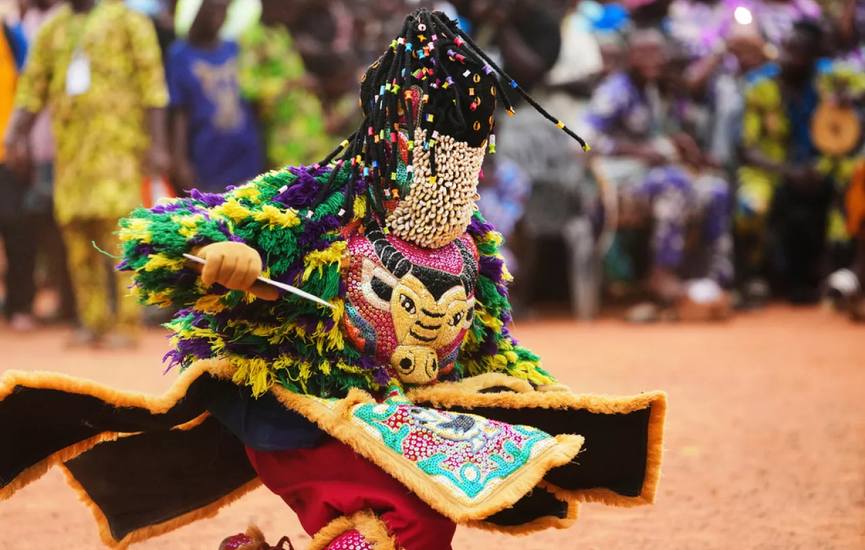To the rhythmic pulse of traditional drums and the cheers of captivated onlookers, masked performers clad in vibrant fabrics and elaborately carved wooden masks danced through the streets of Porto-Novo on Sunday. The spectacle marked one of Benin’s most culturally significant festivals, a living tribute to the spiritual traditions of the Yoruba, Somba, and Betammaribe communities.
At the heart of the festival are the revered figures of Egungun and Zangbeto—ancestral spirits believed to embody the wisdom of the dead and serve as guardians of the community. As they move through the crowd, their dramatic gestures and swirling costumes tell ancient stories passed down orally through generations, blending entertainment with deep spiritual meaning.
“Egungun is not just a performance,” explained local historian and cultural expert Nadège Agossou. “It is a sacred ritual. The masked spirits represent our ancestors who return briefly to offer guidance, protection, and moral instruction.”
The Zangbeto, known as the “Night Watchmen,” play a particularly important role in voicing social order. Covered in towering raffia structures and believed to be inhabited by spiritual forces rather than people, they sweep through the streets symbolically driving away evil and maintaining peace.
This year’s celebration drew thousands of spectators, including a growing number of international visitors. Tourists from neighboring West African nations, as well as from Europe and North America, lined the routes to witness the mystic choreography and vibrant storytelling.
Recognizing its cultural and economic potential, the Beninese government has made the festival a cornerstone of its national tourism and heritage strategy. In recent years, it has increased funding and promotion for traditional events like this one, positioning Benin as a hub for spiritual and cultural tourism.
“We are proud to share this part of our identity with the world,” said Minister of Culture José Tonato. “Festivals like these are more than attractions—they are expressions of living heritage that strengthen our communities and invite global audiences to engage with Benin’s soul.”
The government’s cultural initiatives have begun to show impact. According to tourism officials, cultural tourism in Benin has seen a measurable rise, with festival-driven travel contributing to local economies, particularly in heritage-rich areas like Porto-Novo, Abomey, and Ouidah.
For local artisans, performers, and spiritual leaders, the festival is also an opportunity to pass traditions to younger generations and reaffirm the role of ancestral spirituality in modern Beninese life.
As twilight fell over Porto-Novo and the final drumbeats echoed into the night, one thing was clear: the ancestral spirits still have much to say—and a community eager to listen.
